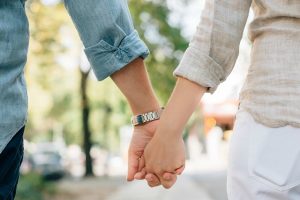 Everyone knows the sounds of snoring. We’ve all heard them growing up either from family members or on television. In cartoons snoring is usually over exaggerated and used to let the watcher know the person is supposed to be sleeping. They must be truly sleeping to snore, too, not just faking it. While it’s all well and good to laugh over these funny antics on the television, the fact of the matter is that snoring is not only a telling sign of comic relief.
Everyone knows the sounds of snoring. We’ve all heard them growing up either from family members or on television. In cartoons snoring is usually over exaggerated and used to let the watcher know the person is supposed to be sleeping. They must be truly sleeping to snore, too, not just faking it. While it’s all well and good to laugh over these funny antics on the television, the fact of the matter is that snoring is not only a telling sign of comic relief.
Did you know that snoring can be a sign of underlying health problems? Snoring can betray sleep apnea and a host of other medical issues. Snoring and every dreamers enemy, insomnia, have been linked to something devastating: strokes.
Sleep-disordered breathing and sleep-wake disturbances represent both a risk factor and a consequence of stroke affecting stroke recovery, outcome and recurrence, a review confirmed.
The meta-analysis of prospective clinical and population-based studies noted that more than 50% of patients with transient ischemic attack (TIA) and stroke have sleep-disordered breathing.
Sleep-disordered breathing is an independent stroke predictor (OR 2.24; CI 1.57 to 3.19), and that stroke risk increases with apnea-hypopnea index (AHI), Dirk M. Hermann, MD, of University Hospital Essen, Germany, and Claudio L. Bassetti, MD, of University Hospital Bern, Switzerland, reported online in Neurology.
“There is solid evidence linking sleep-related breathing disturbances (e.g., obstructive sleep apnea), insomnia (lack of sleep), and hypersomnia (excessive sleep) with stroke and disturbed stroke recovery,” Hermann told MedPage Today. “Sleep-related breathing disturbances and sleep-wake disturbances should carefully be monitored in stroke patients on stroke units and rehabilitation wards. Here, clinical routines should be implemented for sleep assessment and patient treatment.”
The researchers cautioned that clinicians should proceed with care when using pharmacologic approaches to sleep-wake disturbances in the management of stroke and TIA.
Similarly, while sleep-wake disturbances can be detected with careful patient histories, questionnaires, and actigraphy, treatment is relevant for stroke recovery and outcome and “should be used thoughtfully considering potential side effects,” they said.“Treatment of sleep-wake disturbances with hypnotics and sedative antidepressants (insomnia), activating antidepressants or stimulants (hypersomnia), dopaminergic drugs (restless leg syndrome), and clonazepam [Klonopin] (parasomnias) are based on single case observations and should be used with caution.”
As if the annoyance of snoring wasn’t bad enough. Those who suffer from insomnia will tell you it’s no walk in the park. Not being able to rest when you truly need it can be devastating. Not being able to sleep without your snoring either waking you up or causing your partner to wake you up is also undesirable. If you or someone you know suffers from snoring or insomnia it would be in their best interests to speak with a health care professional.
Yes, there are devices and medication that can assist with snoring and sleeplessness, respectively, but if you’re concerned about your risk of stroke you need to speak with a medical professional. Once you’ve been seen and assessed you can work with your doctor on determining what mouthpiece might work best for you or if there is something else you need to consider.
Your health is no joke and it’s important that you are aware and understand everything that happens. If you have a history of heart disease in your family that’s all the more reason to get yourself checked out. Don’t let snoring and insomnia pull a fast one on you.
